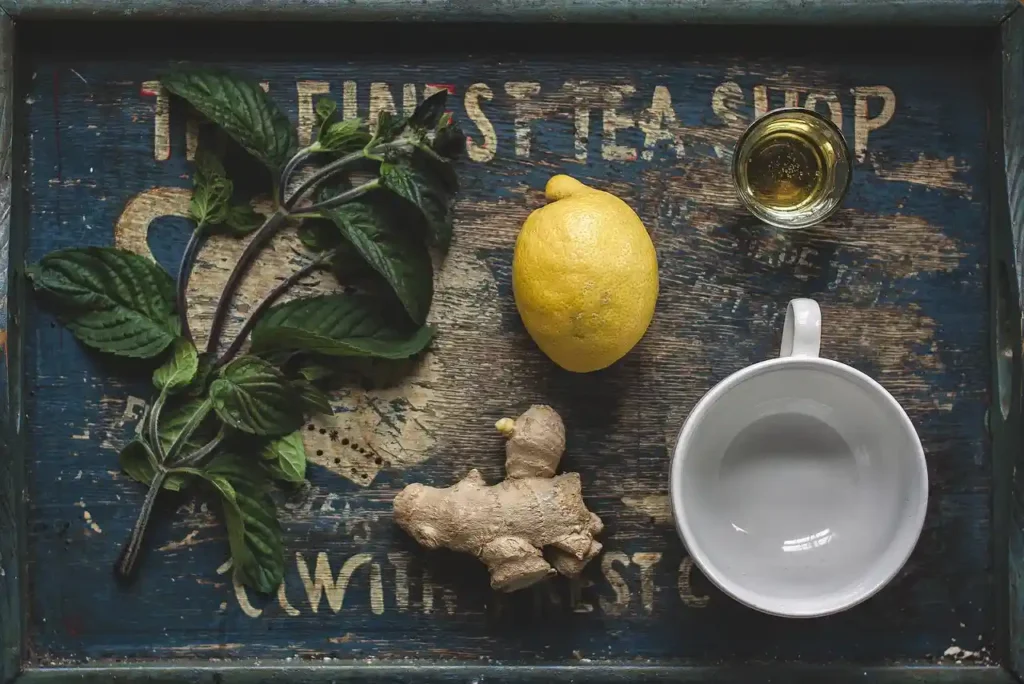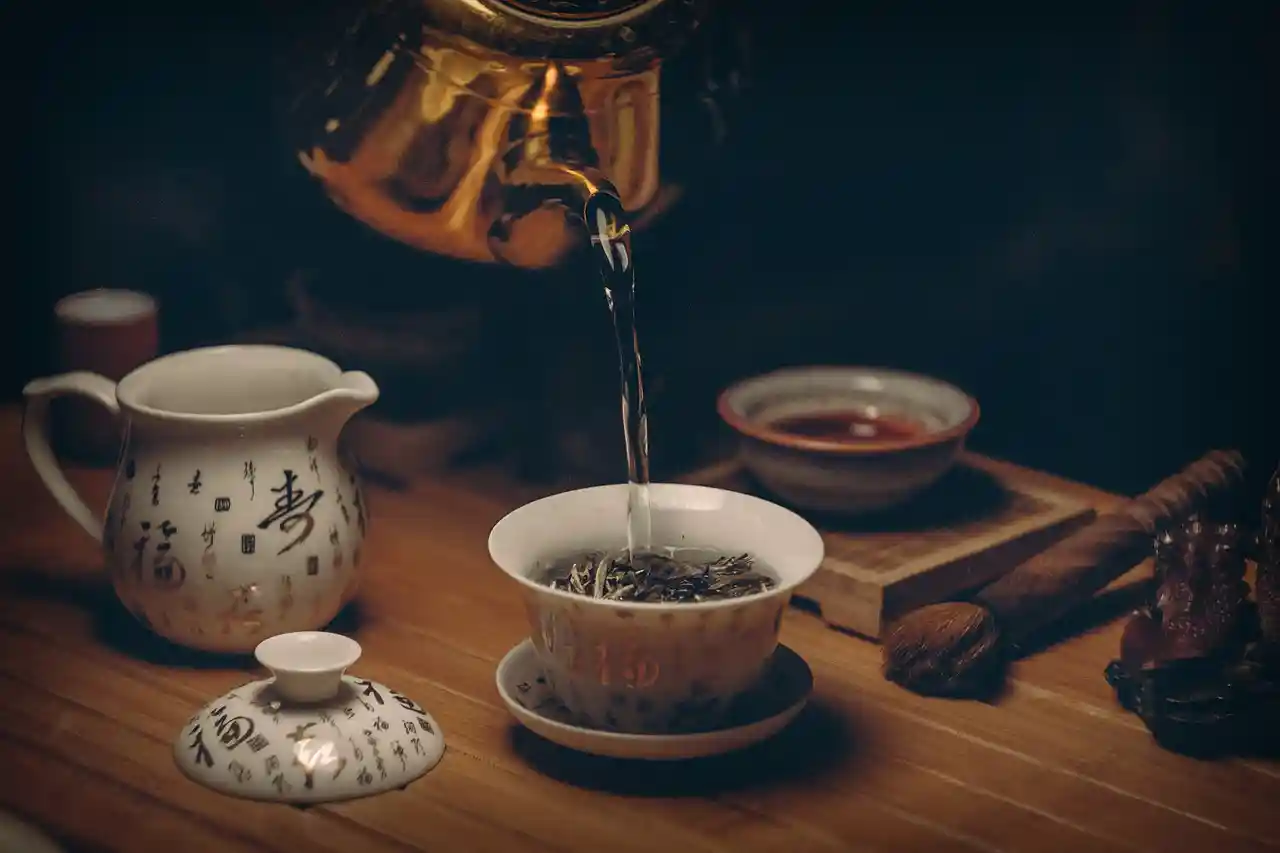Organic tea is tea that is grown without the use of synthetic fertilizers, pesticides, herbicides, or fungicides. It is also processed and packaged in a way that preserves its natural quality and flavor. Organic tea has many benefits for your health, the environment, and the farmers who produce it. In this article, we will explore why you should drink organic tea, and how to choose the best one for your taste and needs.
Why Drink Organic Tea?

There are many reasons to drink organic tea, but here are some of the most important ones:
- Organic tea is better for your health. Tea is rich in antioxidants, polyphenols, and other beneficial compounds that can protect your cells from damage, lower your blood pressure, reduce inflammation, and boost your immune system¹. However, conventional tea may also contain harmful residues of chemicals that can negate these benefits or even cause adverse effects. According to a study by the Canadian Food Inspection Agency, 29% of the tea samples tested contained pesticide residues above the acceptable limit². Some of these pesticides are known to be carcinogenic, neurotoxic, or endocrine-disrupting³. Organic tea, on the other hand, is free of these contaminants and ensures that you get the full health benefits of tea without any risks.
- Organic tea is better for the environment. Tea cultivation is one of the most intensive and environmentally damaging agricultural practices in the world. Conventional tea farms use large amounts of synthetic fertilizers, pesticides, herbicides, and fungicides that pollute the soil, water, and air, and harm the biodiversity and ecosystems of the surrounding areas⁴. These chemicals also contribute to climate change by emitting greenhouse gases and depleting the soil’s organic matter and carbon sequestration capacity⁵. Organic tea farms, on the other hand, use natural and sustainable methods of fertilization, pest control, and weed management that preserve and enhance the soil quality, water conservation, and biodiversity of the tea-growing regions. Organic tea farms also tend to be smaller and more diverse, which reduces the risk of soil erosion, landslides, and monoculture dependence.
- Organic tea is better for the farmers and workers. Tea is one of the most labor-intensive crops in the world, requiring a lot of manual work and skill. However, conventional tea farmers and workers often face harsh and exploitative working conditions, such as low wages, long hours, lack of safety equipment, exposure to toxic chemicals, and violation of labor rights. These conditions affect not only their physical and mental health, but also their social and economic well-being. Organic tea farmers and workers, on the other hand, enjoy better and fairer working conditions, such as higher incomes, shorter working hours, access to health care and education, and participation in decision-making and community development. Many organic tea farms are also certified by Fair Trade, which ensures that they receive a fair price for their products and a premium for social and environmental projects.
As you can see, drinking organic tea is not only good for you, but also for the planet and the people who grow it. By choosing organic tea, you are supporting a more sustainable, ethical, and healthy way of producing and consuming tea.
How to Choose the Best Organic Tea?

Now that you know why you should drink organic tea, you may wonder how to choose the best one for your taste and needs. There are many factors to consider when buying organic tea, such as the type, origin, quality, flavor, and certification of the tea. Here are some tips to help you make the best choice:
Choose the type of tea that suits your preference and purpose.
There are many types of tea, such as black, green, white, oolong, pu-erh, and herbal. Each type has its own characteristics, benefits, and drawbacks, depending on how it is processed, oxidized, and fermented. For example, black tea is fully oxidized and has a strong and bold flavor, high caffeine content, and high antioxidant activity. Green tea is lightly oxidized and has a fresh and grassy flavor, moderate caffeine content, and high polyphenol content. White tea is minimally oxidized and has a delicate and floral flavor, low caffeine content, and high catechin content. Oolong tea is partially oxidized and has a complex and varied flavor, moderate to high caffeine content, and moderate antioxidant activity. Pu-erh tea is fully fermented and has a earthy and woody flavor, high caffeine content, and high probiotic activity. Herbal tea is not technically tea, but a infusion of various herbs, fruits, flowers, and spices. It has a wide range of flavors, no caffeine content, and various health benefits depending on the ingredients. You can choose the type of tea that matches your taste, mood, and purpose, such as energizing, relaxing, detoxifying, or healing.
Choose the origin of the tea that reflects the terroir and culture of the tea-growing region.
Tea is grown in many countries and regions around the world, such as China, India, Japan, Sri Lanka, Taiwan, Kenya, and Turkey. Each region has its own climate, soil, elevation, and cultivation methods that affect the quality and flavor of the tea. For example, Chinese tea is known for its diversity and complexity, as it has thousands of varieties and styles that reflect the different regions, seasons, and traditions of China. Indian tea is known for its strength and richness, as it is mostly grown in high-altitude areas with abundant rainfall and sunshine. Japanese tea is known for its freshness and umami, as it is mostly steamed and shaded to preserve the green color and amino acids of the tea leaves. Sri Lankan tea is known for its brightness and briskness, as it is mostly grown in low-altitude areas with warm and humid conditions. Taiwanese tea is known for its fragrance and sweetness, as it is mostly grown in high-altitude areas with cool and misty conditions. Kenyan tea is known for its color and body, as it is mostly grown in high-altitude areas with volcanic soil and ample sunshine. Turkish tea is known for its aroma and flavor, as it is mostly grown in low-altitude areas with mild and rainy conditions. You can choose the origin of the tea that reflects the terroir and culture of the tea-growing region, and enjoy the unique and authentic taste of the tea.
Choose the quality of the tea that indicates the grade and freshness of the tea.
Tea quality is determined by many factors, such as the variety, cultivation, harvesting, processing, and storage of the tea. Generally, the higher the quality, the better the flavor, aroma, appearance, and health benefits of the tea. However, quality is not always easy to judge, as it may vary depending on the type, origin, and preference of the tea. Some common indicators of quality are the grade, the leaf size, the color, the aroma, and the taste of the tea. For example, tea grade is a system of classification that indicates the size and shape of the tea leaves and buds. It is usually expressed by letters, such as FOP (Flowery Orange Pekoe), BOP (Broken Orange Pekoe), and CTC (Crush, Tear, Curl). Generally, the higher the grade, the more whole and intact the tea leaves and buds are, and the more flavorful and aromatic the tea is. However, grade is not always a reliable indicator of quality, as it may vary depending on the type and origin of the tea. For example, some types of tea, such as oolong and pu-erh, do not use the grade system, as they are more concerned with the oxidation and fermentation levels of the tea. Some origins of tea, such as Japan and Taiwan, do not use the grade system, as they are more concerned with the cultivar and elevation of the tea. Therefore, you should also consider other indicators of quality, such as the leaf size, the color, the aroma, and the taste of the tea. Generally, the higher the quality, the larger and more uniform the leaf size, the brighter and more natural the color, the stronger and more pleasant the aroma, and the smoother and more balanced the taste of the tea. However, quality is also subjective, as it may depend on your personal preference and expectation of the tea. Therefore, you should also trust your own senses and judgment when choosing the quality of the tea.
Choose the flavor of the tea that appeals to your palate and mood.
Tea flavor is influenced by many factors, such as the type, origin, quality, and preparation of the tea. It is also affected by your own perception, preference, and experience of the tea. Tea flavor can be described by many attributes, such as the strength, the body, the sweetness, the bitterness, the astringency, the acidity, the floral, the fruity, the spicy, the nutty, the smoky, the earthy, and the woody. For example, some teas have a strong and full-bodied flavor, such as black tea and pu-erh tea. Some teas have a sweet and smooth flavor, such as white tea and oolong tea. Some teas have a bitter and astringent flavor, such as green tea and herbal tea. Some teas have a floral and fruity flavor, such as jasmine tea and rose tea. Some teas have a spicy and nutty flavor, such as chai tea and rooibos tea. Some teas have a smoky and earthy flavor, such as lapsang souchong tea and mate tea. Some teas have a woody and complex flavor, such as darjeeling tea and oolong tea. You can choose the flavor of the tea that appeals to your palate and mood, and experiment with different combinations and blends of tea.
Choose the certification of the tea that guarantees the organic and ethical standards of the tea.
Tea certification is a process of verification and validation that ensures that the tea meets certain criteria and standards of quality, safety, sustainability, and ethics. There are many types of tea certification, such as organic, fair trade, rainforest alliance, UTZ, and EU organic. Each type has its own requirements, benefits, and drawbacks, depending on the scope, level, and cost of the certification. For example, organic certification ensures that the tea is grown and processed without the use of synthetic chemicals, genetically modified organisms, irradiation, or sewage sludge. Fair trade certification ensures that the tea is produced and traded in a way that respects the rights, dignity, and well-being of the farmers and workers, and provides them with a fair price and a social premium. Rainforest alliance certification ensures that the tea is grown and harvested in a way that conserves the natural resources, biodiversity, and ecosystems of the tea-growing regions, and improves the livelihoods of the farmers and communities. UTZ certification ensures that the tea is grown and sourced in a way that follows good agricultural practices, environmental management, and social responsibility. EU organic certification ensures that the tea complies with the organic regulations and standards of the European Union, which are among the strictest in the world. You can choose the certification of the tea that guarantees the organic and ethical standards of the tea, and look for the corresponding labels and logos on the tea packaging.
As you can see, choosing the best organic tea is not a simple task, but a rewarding one. By considering the type, origin, quality, flavor, and certification of the tea, you can find the organic tea that suits your taste and needs, and enjoy the benefits of drinking organic tea.
Conclusion
Organic tea is tea that is grown and processed without the use of synthetic chemicals, and that preserves its natural quality and flavor. Organic tea has many advantages for your health, the environment, and the farmers who produce it. By drinking organic tea, you are supporting a more sustainable, ethical, and healthy way of producing and consuming tea. However, choosing the best organic tea is not easy, as there are many factors to consider, such as the type, origin, quality, flavor, and certification of the tea. In this article, we have given you some tips and guidelines on how to choose the best organic tea for your taste and needs. We hope that this article has helped you to learn more about organic tea, and to find the organic tea that you love.
Thank you for reading this article. If you have any questions or comments, please feel free to contact us. We would love to hear from you. Happy tea drinking! 😊
How to Choose the Best Organic Coffee Beans for Your Perfect Brew
Organic Coffee Creamers: A Healthy and Delicious Way to Enjoy Your Coffee
Source:
(1) The Best Organic Tea, According to Our Taste Tests – Treehugger. https://www.treehugger.com/best-organic-tea-5210536.
(2) Organic Tea: Loose Leaf Tea from Organic Tea Leaves – Arbor Teas. https://www.arborteas.com/organic-tea-all/.
(3) Organic Tea | Luxury Gourmet Tea | Tea Forte. https://teaforte.com/collections/gourmet-tea-organic-tea.

